- Best for psoriasis: CeraVe Psoriasis Moisturizing Cream
- Best for elbows and knees: Eucerin UreaRepair PLUS 30% Urea Cream
- Best facial moisturizer for normal skin: Clinique Dramatically Different Moisturizing Lotion
- Best body lotion for relieving itch: Cetaphil Daily Smoothing Moisturizer for Rough & Bumpy Skin
- Best for cracked, dry heels and toes: Gold Bond Ultimate Healing Foot Cream
- Best facial moisturizer for dry or sensitive skin: The Ordinary Natural Moisturizing Factors + HA
What is urea?
Urea, sometimes called carbamide, is a keratolytic ingredient (one that helps remove dead skin) included in various skincare formulations. Keratolytic agents are used to soften and shed the outermost layer of dead skin cells.
Urea naturally exists in the skin where it helps maintain the barrier and retain moisture. And as the name hints, urea is also present in urine. The compound is produced by the liver as a breakdown product of amino acids.
Individuals with psoriasis and certain other skin disorders may have lower-than-ideal levels of naturally occurring urea in their skin.
Is the urea in beauty products derived from urine?
No — the urea used in commercial skincare items is not harvested from human or animal urine. It’s synthesized industrially in laboratories.
High- versus low-concentration urea
Urea-containing products come in a wide range of concentrations.
Higher concentrations (commonly around 30% or higher) are used to remove the toughest, thickest patches of dead skin. For instance, high-strength urea is helpful for dense areas of dead skin often found on the heels.
You can also find urea at low concentrations, sometimes as little as 2%. Low-dose urea is primarily a moisturizer. It may be combined with other beneficial skincare ingredients or used on its own to hydrate. Lower concentrations are generally safe for facial use.
Depending on the formulation, some urea products are available over the counter while others require a prescription.
How we chose urea creams
- Brand reputation: We selected items from trustworthy manufacturers — domestic and international — that are sold by reputable retailers in the U.S.
- Other ingredients: Beyond urea, each product includes components that provide hydration for dry or very dry skin. Some are particularly advantageous for specific conditions like psoriasis.
- Retailer reputation: We prioritized reliable sellers and manufacturers. When buying, we recommend reading customer feedback about the seller. Because urea products are less common in the U.S., some vendors might substitute items without urea or charge high prices for discontinued lines.
Some synthetic urea derivatives, such as imidazolidinyl urea and diazolidinyl urea, release formaldehyde. This factor, combined with myths about urine-derived ingredients, may explain why urea-containing skincare options are limited in certain markets like the United States.
Healthline’s picks for creams and lotions with urea
Best for psoriasis
CeraVe Psoriasis Moisturizing Cream

- Price: $$
- Skin type: psoriasis (scaly, red, dry, flaky skin)
- Free of: fragrance
- Key ingredients: urea, salicylic acid, lactic acid, ceramides, niacinamide
- Pros: mild, soothing, can help ease psoriasis symptoms
- Cons: some buyers report packaging issues (leakage during shipping)
Along with urea, this moisturizer includes salicylic acid, ceramides, and vitamin B3 (niacinamide).
It helps hydrate and reinforce the skin’s outer barrier and can reduce psoriasis-related itching, redness, and flaking.
The product has earned recognition from the National Psoriasis Foundation.
Shop now at AmazonBest for elbows and knees
Eucerin UreaRepair PLUS 30% Urea Cream

- Price: $$
- Skin type: extremely rough, dry, and scaly skin
- Free of: fragrance
- Key ingredients: 30% urea, ceramides
- Pros: effective for keratosis pilaris and psoriasis, high-strength urea, helps thickened skin on hands and heels
- Cons: not suitable for delicate skin areas like the face; intended for targeted rough patches rather than whole-body use
Eucerin’s UreaRepair line offers lotions, creams, and foams with different urea percentages. At 30%, this cream is tailored for very rough, dry patches on body areas such as elbows, feet, and knees and should be avoided on facial or sensitive skin.
It also contains ceramides and moisturizing components Eucerin labels as NMF (natural moisturizing factors).
Shop now at AmazonBest facial moisturizer for normal skin
Clinique Dramatically Different Moisturizing Lotion

- Price: $$-$$$
- Skin type: dry, normal, combination
- Free of: fragrance, parabens, sulfates, denatured alcohol, SLS, SLES
- Key ingredients: mineral oil, glycerin, urea
- Pros: quick-absorbing, lightweight, non-greasy
- Cons: contains dyes; may not be sufficient for very dry skin
This facial lotion is formulated to be light, silky, and fast-absorbing. It is fragrance-free.
It’s suited for normal, dry, or combination complexions but may not provide enough hydration for very dry skin types.
Besides urea, the formula includes mineral oil and glycerin to help lock in moisture.
Shop now at UltaBest body lotion for relieving itch
Cetaphil Daily Smoothing Moisturizer for Rough & Bumpy Skin

- Price: $$
- Skin type: rough, bumpy, red, dry, sensitive skin
- Free of: fragrance, mineral oil
- Key ingredients: 20% urea, glycerin
- Pros: large bottle, noncomedogenic, calming for red, dry, rough skin
- Cons: not intended for facial application
This lotion is both fragrance-free and odorless. With 20% urea, it’s an effective option for very dry or rough skin on the body and feet.
It’s formulated to reduce dryness and significantly curb itching by reinforcing the skin’s moisture barrier and providing deep hydration.
Shop now at AmazonBest for cracked, dry heels and toes
Gold Bond Ultimate Healing Foot Cream

- Price: $
- Skin type: dry, rough, cracked heels
- Free of: gluten and dye
- Key ingredients: urea, aloe, vitamins A, C, and E
- Pros: wallet-friendly, good for feet and elbows, moisturizing and soothing
- Cons: contains fragrance
If your heels or toes have rough or cracked skin, this cream may help. It combines urea, aloe, and helpful vitamins such as A, C, and E to nourish dry skin.
The texture is thick but absorbs relatively quickly. It has a mild scent, so those with sensitive skin should patch-test to avoid irritation.
Users report it also performs well on elbows and other dry patches around the body.
Shop now at WalgreensBest facial moisturizer for dry or sensitive skin
The Ordinary Natural Moisturizing Factors + HA

- Price: $
- Skin type: dry, sensitive, normal
- Free of: vegan, cruelty-free and free from alcohol, silicones, oils, nuts, and gluten
- Key ingredients: urea, hyaluronic acid, ceramides
- Pros: affordable, non-greasy, vegan
- Cons: some users feel the texture is too dense
This facial moisturizer is vegan and free of alcohol. It’s formulated to hydrate various skin types, including dry, normal, and sensitive skin, while leaving a non-greasy finish.
In addition to urea, it contains hyaluronic acid, ceramides, and plant-derived moisturizing compounds.
Shop now at SephoraWhat to consider in urea creams
Urea content in products is listed as a percentage. Higher percentages provide stronger exfoliation.
Formulations with less than 10% urea are primarily used to hydrate dry skin. Products with 10% or more have keratolytic effects and aid both exfoliation and moisturizing. Some preparations reach 40% urea; those are intended to remove thickened, hard patches of dead skin, such as on the heels.
How to find the best urea cream for you
Choosing the right urea product depends on the area you want to treat and your skin type.
Certain items — including some listed above — are meant for localized use on heels or other specific body spots. Others are gentle enough for facial application.
Urea creams come in strengths from about 2% up to 50%, so if you need guidance, consult a healthcare professional who can advise on the appropriate concentration for your needs.
To remove thick, dense dead skin, select products with higher concentrations (30%, 40%, or 50%) as they deliver the most exfoliation and soften stubborn areas.
For a gentle facial moisturizer, opt for a low concentration (no higher than 10%) and confirm the label states it’s suitable for facial use.
Some formulations indicate the skin types they best serve; others are created specifically for psoriasis, keratosis pilaris, sensitive skin, and similar concerns.
When to see a doctor
Sometimes dry skin can disrupt daily life. See a dermatologist if you notice any of the following:
- you’re scratching frequently
- your symptoms are persistent rather than occasional
- over-the-counter treatments aren’t improving your dry skin
- your symptoms are worsening or painful, including irritation, redness, swelling, flaking, peeling, or cracking
A physician can identify triggers and causes and recommend the most appropriate treatment plan, so seek professional care if you experience these signs.
Frequently asked questions about urea creams
Are there any side effects of using urea cream?
The World Health Organization lists urea as an essential medicine, and it’s generally well tolerated. Nonetheless, some people may have allergic reactions or irritation, such as itching, burning, or stinging. Redness can also occur; if side effects are severe or concerning, consult a healthcare professional promptly.
Is it safe to use urea cream every day?
Whether a urea product can be used daily depends on its concentration and the area being treated. Always read product directions and perform a patch test before widespread application. If prescribed by a healthcare provider, follow their instructions closely.
Is urea cream suitable for all skin types?
Urea creams can help many skin types, including sensitive, dry, cracked, red, and bumpy skin. However, allergic reactions or irritation are possible in some users.
What is urea 40 cream?
Urea 40 cream contains 40% urea and is considered a high-strength formulation. It’s best for intense exfoliation and softening of thickened skin and is generally unsuitable for delicate areas like the face.
Does urea cream actually work?
Research indicates urea is “essential for the adequate hydration” of the skin’s outermost layer and helps improve barrier function. Still, individual skin needs and sensitivities vary, so a dermatologist can help determine which ingredients are most appropriate for you.
The takeaway
Urea-containing products can be less common, but urea delivers effective hydration, moisture retention, and exfoliation, making it valuable for dry and problematic skin.
When choosing urea products, check the percentage. Lower concentrations are suitable for facial and general dry skin, while higher concentrations are better for very rough, cracked, or thickened skin that needs exfoliation.

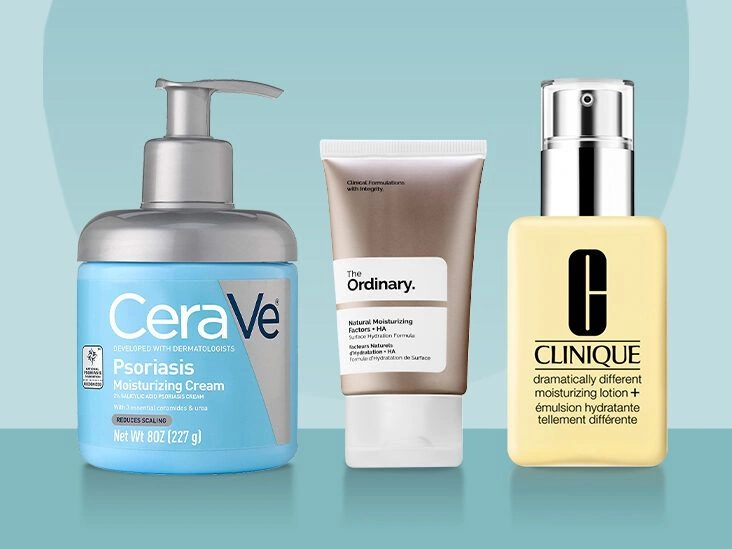

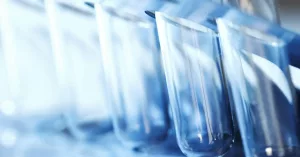

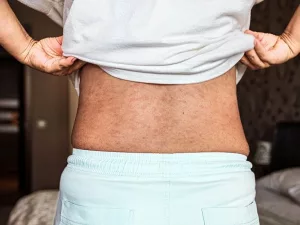
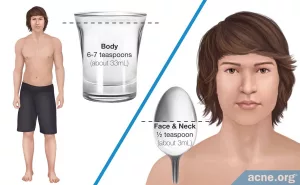


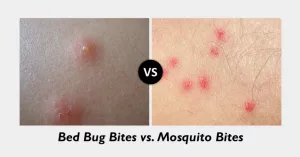







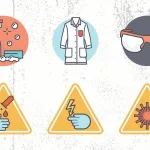
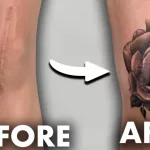


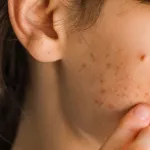
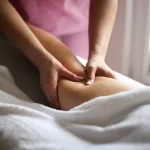


Leave a Reply
You must be logged in to post a comment.